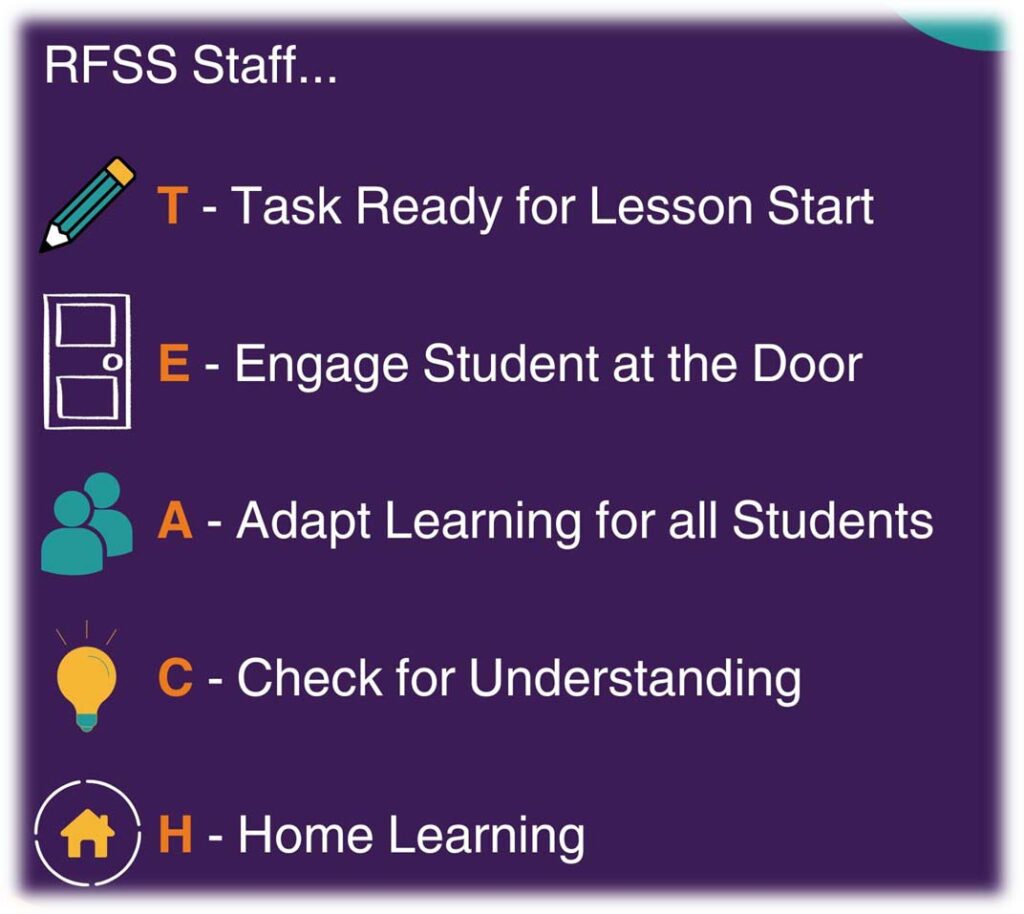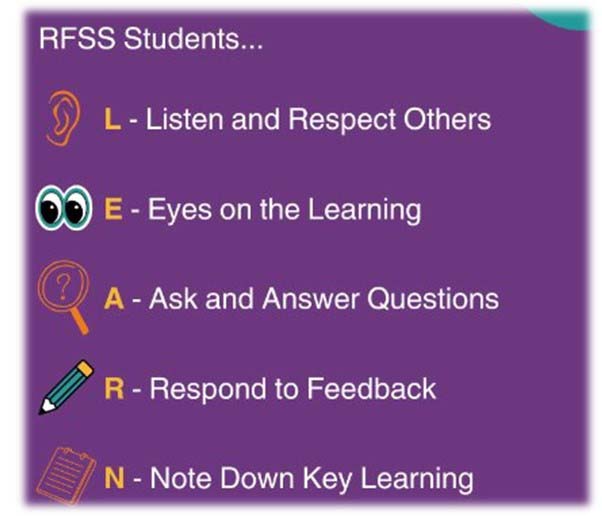At RFSS the development of quality-first teaching and positive learning is central to everything we do. This ensures all our students, regardless of gender, ethnicity or ability, receive the best possible learning experiences to enable them to achieve and maximise their potential. Our forward-thinking curriculum, designed to meet the needs of all learners, is delivered by teachers who embrace the latest innovations in teaching and learning and interact with the most up to date educational research.
Our teaching and support staff adopt a set of Teaching and Learning principles that are research-based and pedagogy-led. When aligned with the school’s strong belief in the importance of relationships for learning between staff and students, the principles ensure all students are seen as individuals who are not limited in what they can achieve. Our framework allows for the systematic growth of minds, and the development of the cognitive skills, values, attitudes and attributes needed to achieve. We aim to make our students ‘self-regulating learners’ which means they develop forethought when approaching tasks, the ability to monitor ways in which they can improve, and an inquisitive nature when reflecting on learning. Above all we think all students should feel a sense of achievement at school.
Below are some images that represent our school Teaching and Learning principles.




